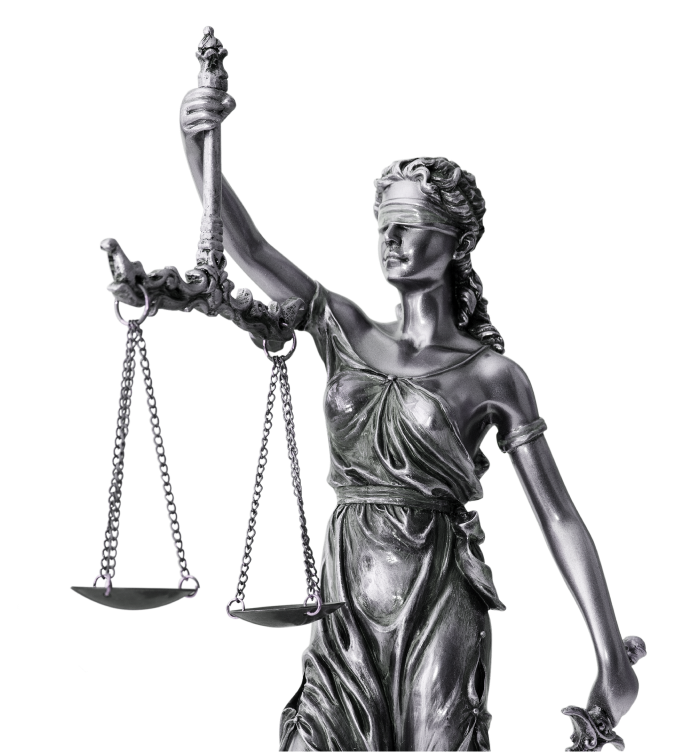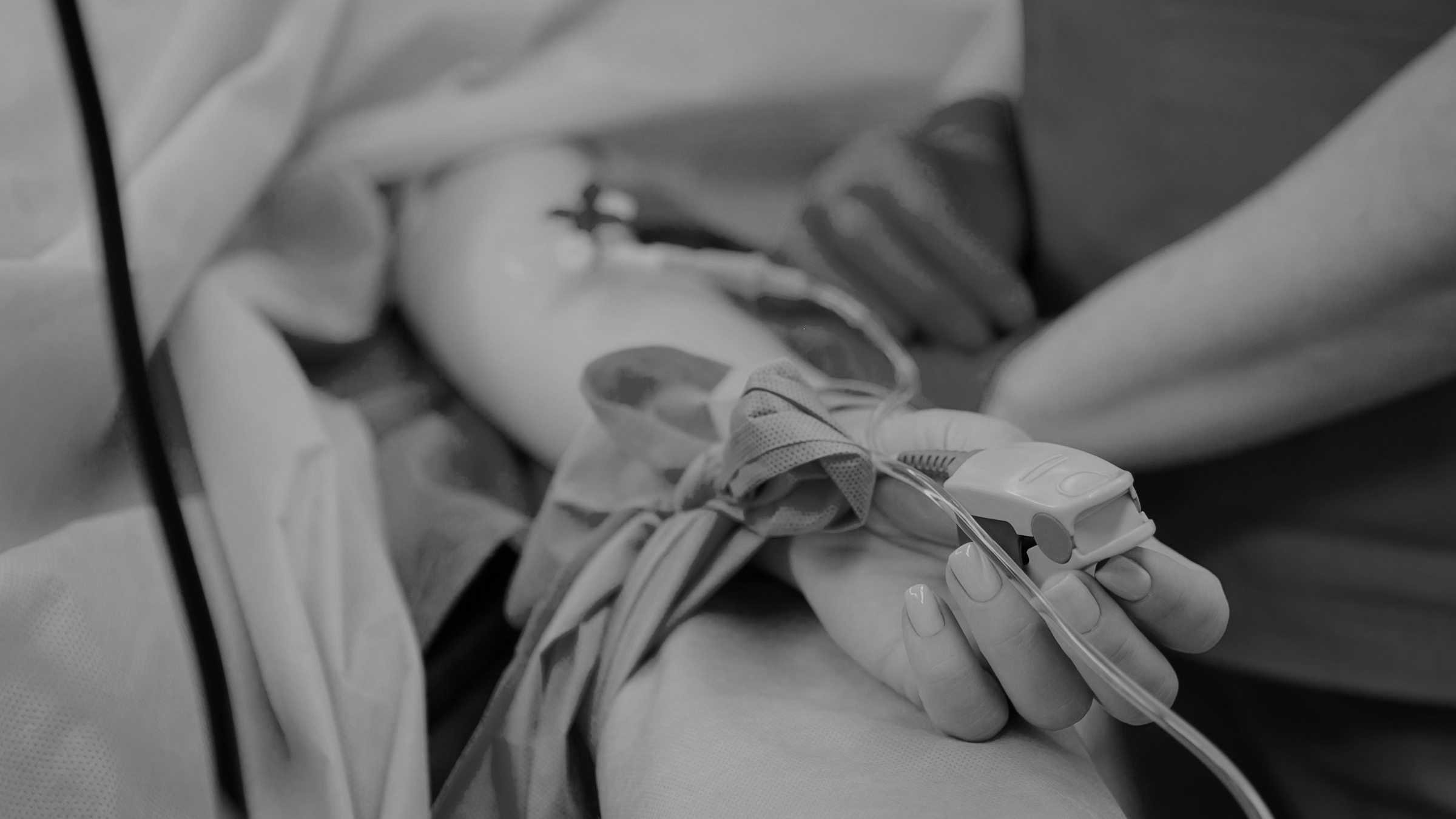If you have suffered damage as a result of a medical error, you can claim appropriate compensation. Of course, it is not as simple as always when legal issues are involved. I’ll try to make it a bit clearer for you how to pursue your rights in the event of damage caused by medical malpractice in the article below.
In this blog post you’ll learn:
- How does a medical error occur?
- What is doctor’s due diligence obligation?
- Who is responsible for medical errors?
- What is the legal basis for the civil liability for a medical error?
- What can be claimed for a medical error?
- What is a compensation for medical error?
- What is a satisfaction for a medical error?
- What is the amount of compensation and satisfaction in the event of a medical error?
- What benefits are available to persons other than the aggrieved party?
- How to obtain compensation for a medical error?
- Is a claim for compensation for damage caused by a medical error subject to a statute of limitations?
- FAQ
How does a medical error occur?
You must know that a medical error is the result of many factors, including:
- actions of a person practicing a medical profession that is inconsistent with the generally recognized state of medical knowledge,
- failure to exercise due diligence and acting in a reckless or negligent manner, in the form of the so-called unintentional guilt,
- damage suffered by the patient,
- the existence of a causal relationship between the error committed and the patient’s harm, in the form of their death, bodily injury or health disorder.
As regards the latter circumstance, medical trials do not require establishing a causal relationship with absolute certainty. This is because in situations where human health and life are at stake, there can be no absolute certainty, but only a high degree of probability that the damage resulted from a specific event. Therefore, if this probability is proven by the aggrieved party, then the existing causal relationship is considered established.
I wrote extensively about what a medical error itself is in the article entitled: „Medical malpractice – what are they?”
What is doctor’s due diligence obligation?
Importantly, not only a doctor, but every person practicing a medical profession, as well as a healthcare entity in general – for example a clinic or a hospital, are obliged to exercise the utmost care at every stage of contact with the patient.
This applies to every stage of treatment, i.e. diagnostic tests, the treatment process itself, and care after its completion. The quality of medical services should be particularly high due to the professional nature of the activities of these entities, as well as due to the fact that their activities concern a particularly sensitive subject, which is human health and life.
This means that the doctor should carry out all procedures in accordance with medical art and knowledge and with the utmost care required of a professional. The doctor, like every professional, is responsible for competence.
This is about real and substantive competences, not formal ones, confirmed only by a diploma or an appropriate certificate. Ignorance in this regard constitutes the clear fault of the medical service provider in the event of damage.
All this means that the doctor’s fault is determined not only by the lack of sufficient knowledge and practical skills, but also by simple clumsiness and inattention when performing the procedure, lack of appropriate foresight, as well as oversight or forgetfulness. The doctor is liable for any civil fault, even for its slightest manifestation.
It must be emphasized once again that this applies not only to doctors, but to all medical professionals.
Of course, the scope of required diligence is not influenced by the fact whether health services are provided free of charge or on a commercial basis.
In turn, however, the requirements of high diligence expected from doctors cannot translate into assigning them duties that are practically impossible to perform. This is due to the fact that certain types of medical activities are inherently associated with an increased risk of harm, which often cannot be excluded or avoided, even with the highest level of care.
Who is responsible for medical errors?
The individual circumstances of a given case determine who is responsible for medical errors. It depends on the perpetrator who committed the medical error causing the damage, as well as its type and the circumstances in which it occurred. This may be a doctor or other medical professional, a facility where he/she performed his/her activities – for example a hospital or clinic, or an insurer.
Importantly, a doctor employed under an employment contract is not liable for any medical errors committed. It is the responsibility of the institution where he/she was employed, and he/she only obtains the status of a witness in such a case, bearing only professional and labor liability towards his/her employer.
In turn, a doctor employed under a civil law contract will be jointly and severally liable for a medical error committed together with the facility for which he/she performed his/her activities.
A doctor conducting his/her activity in the form of an individual practice will be solely responsible for his/her deficiencies. The liability of the insurer cannot be also ignored, i.e. the insurance company in which a given doctor or health care facility is insured, against the consequences of medical errors.
To sum up, the following may be responsible for a medical error:
- a person practicing a medical profession – for example a doctor,
- the facility, where he/she performed her activities, for example a hospital, clinic or other health care facility,
- insurer of the doctor or a given medical facility.
It should be added that the responsibilities of all these entities generally intersect and are interconnected.
What is the legal basis for the civil liability for a medical error?
You must know that the legal basis for civil liability for medical error is contained in the provisions of the Civil Code, namely in its Article 415, which states that whoever, through his/her fault, has caused damage to another person is obliged to compensate it. Compensation for a doctor’s error is awarded based on this legal standard.
The principles of this liability are specified in Articles 361 – 363 and Articles 445 – 447 of the Civil Code (the latter regulate the institution of compensation).
What can be claimed for a medical error?
If you have suffered damage as a result of a medical error, you are entitled to strictly defined civil law claims under the above-mentioned provisions. In this respect, you have the right to:
- compensation,
- satisfaction for the damage suffered,
- other benefits.
Compensation for medical error
Compensation for medical malpractice is a benefit aimed at repairing the property damage caused by the perpetrator. Its function is to compensate the loss that the injured person suffered as a result of an accident, in this case a medical error, but this applies only to the material sphere.
The damage may affect both the aggrieved party (for example, in terms of covering the costs of treatment for physical injuries) and his/her property (in the form of covering the costs of destroyed items).
In accordance with applicable regulations, compensation for medical error should include compensation for the damage caused by the perpetrator – at the aggrieved party’s option, either by restoring the previous condition or paying an appropriate sum of money.
If the former is impossible or entails excessive difficulties or costs for the obligated party, then the compensation is limited only to payment in money. The amount of compensation should, as a rule, be determined according to the prices on the date of its determination.
Compensation for damage includes the losses that the aggrieved party has suffered and the benefits that he/she could have achieved if the damage had not been caused to him – for example, in the form of lost earnings.
You must know that in the event of bodily injury or health impairment, compensation for the damage covers all resulting costs. At the request of the aggrieved party, the person obliged to repair the damage should provide in advance the amount needed for the costs of treatment. If you have been disabled as a result of a medical error, your claim may also include the amount needed to cover the costs of preparation for another profession.
Satisfaction for medical error
The legal basis for obtaining compensation is Article 445 § 1, in connection with Article 444 of the Civil Code, according to which – in the event of bodily injury or health disorder, the court may award the aggrieved party an appropriate sum as monetary satisfaction for the injury suffered.
Satisfaction is a one-time monetary benefit awarded for non-pecuniary damage caused by the perpetrator, i.e. the so-called “injury”. It is manifested in negative experiences experienced by the aggrieved party in the form of mental and physical suffering, which include, in particular:
- pain,
- negative and changing mood,
- depression,
- deterioration of quality of life,
- general despondency.
Satisfaction is intended to alleviate the consequences resulting from an unfortunate event – unlike compensation, which aims to compensate for the damage incurred. Therefore, while compensation covers compensation for material losses, satisfaction only applies to non-material injury caused to a person. Its aim is to compensate for all the negative experiences that the aggrieved party experienced, taking into account the degree and duration of his/her suffering, as well as factors such as:
- limitations in everyday functioning,
- disabling of personal development,
- exclusion from normal life,
- preventing full earning potential.
Satisfaction has comprehensive nature, so it covers both the present suffering suffered by the aggrieved party and those that will occur in the future. For this purpose, as the aggrieved party, you should receive from the person responsible for the damage a sum of money in such an amount that you can use it to erase or at least alleviate the feeling of injury and regain mental balance.
What is the amount of compensation and satisfaction in the event of a medical error?
First, it should be noted that it is impossible to predict the amount of compensation and satisfaction the injured patient can expect. Compensation for medical malpractice depends on the circumstances and conditions of a specific case, and in particular on those variables that were indicated above when I described compensation and satisfaction. These include, above all:
- type of injury suffered,
- size (amount) of injury suffered,
- scope and duration of psychological and physical suffering of the aggrieved party,
- costs incurred by them to withstand its negative outcomes, including costs of therapy etc.
Generally, the amount of claims submitted in compensation proceedings for medical errors ranges on average from PLN 10,000 to PLN 1,000,000 or more. Compensation for medical errors itself is awarded by the courts in very different amounts.
As an example, I can point out that they awarded satisfaction and compensation for medical malpractice:
- compensation for medical error during childbirth – over PLN 3,000,000 for a child permanently unable to live independently as a result of a perinatal error,
- PLN 1,000,000 for the death of a child,
- PLN 186,000 for a patient who had a surgical drape left in the abdominal cavity during an appendix removal operation and an ovarian cyst.
Other benefits for the aggrieved party
In addition to compensation and satisfaction, as an aggrieved party, you may also demand other types of benefits in certain circumstances.
The most important of them is the annuity. It is a periodic cash benefit, generally payable on a monthly basis, when, as a result of a medical error, the injured person is unable to live independently or requires constant treatment, as a result of which:
- they have completely or partially lost the ability to earn money,
- their needs have increased,
- their prospects for future success have reduced.
If the amount of damage cannot be precisely determined at the time the court issues its judgment, the aggrieved party may be awarded a temporary annuity.
It should be noted that for important reasons, the court may, at the request of the aggrieved party, award him one-off compensation instead of an annuity or part of it. This applies in particular to cases where the injury resulted in disability and the award of one-off compensation will make it easier for him to perform a new profession.
What is very important, in the event of a medical error, you, as the injured person, may be entitled to all the claims described above – at the same time!
Benefits for other persons
Benefits for medical errors are available not only to the injured person, but also to other entitled persons.
If the aggrieved party dies as a result of bodily injury or health disorder, the person obliged to repair the damage should reimburse the costs of treatment and funeral to the person who incurred them.
In turn, the person to whom the deceased had a statutory maintenance obligation may demand an appropriate pension from the perpetrator of the damage. He is entitled to it in an amount appropriate to her needs and to the earning and property capabilities of the deceased for the probable duration of the maintenance obligation.
The same annuity may be claimed by other relatives to whom the deceased voluntarily and constantly provided the means of subsistence. However, the condition is that the circumstances show that the principles of social coexistence require it.
In addition, the Court may award to the closest family members of the deceased:
- appropriate compensation if his/her death resulted in a significant deterioration of their life situation,
- an appropriate amount as monetary satisfaction for the injury suffered,
- an appropriate amount as monetary satisfaction for the injury suffered in the event of the aggrieved party suffering from severe and permanent bodily injury or health disorder, resulting in the inability to establish or continue a family bond.


Everyone is equal before the law. Effective lawyer makes the difference
How to obtain compensation for a medical error?
In order to obtain compensation for a medical error, you must perform a number of activities, the fulfillment of which requires the legal provisions to effectively file a claim in this matter.
How to claim compensation for a medical error?
The first step is to determine the type and amount of damage you have suffered.
Then, you must collect all necessary documentation related to the event that caused the damage and determine the circumstances surrounding it. First of all, you have to:
- gather witnesses who will be able to testify that an accident occurred and what its consequences were,
- secure all evidence indicating what damage you have suffered and in what amount. These may include, first of all, bills for treatment, purchase of medicines or rehabilitation equipment, and all kinds of medical certificates.
You must remember that in the case of a medical error, you are dealing with a special type of evidence, which is medical documentation. First of all, it is a discharge letter from the hospital and a complete medical history. It is best that you, as a patient, immediately after the occurrence of the medical event causing the damage, apply for it to the medical facility where you stayed. It should be confirmed as true to the original by its representative.
The next step is to submit a written request to the perpetrator of the damage to pay compensation. A claim for compensation for medical malpractice must be prepared in an appropriate manner. Its content should indicate the requested amount and the deadline by which it is to be paid. You should also include a description of the event that caused the damage and provide such data as the date and location of the event.
If the perpetrator has concluded an insurance contract, such a request should be submitted to the insurance company.
If the summons remain ineffective, you must file a lawsuit with the appropriate court. The jurisdiction of the Court in the event of a claim for compensation and compensation will depend on the value of the claim. If it exceeds PLN 100,000, the District Court will have jurisdiction to resolve the case, but if it is less, the District Court should be referred to the case.
Compensation for medical error – statute of limitations
Unfortunately, claims for compensation for damage caused by a medical error are subject to a statute of limitations. This occurs after three years from the date on which the aggrieved party learned, or with due diligence could have learned, about:
- damage,
and
- the person obligated to repair it.
This period may not be longer than ten years from the date on which the event causing the damage occurred.
A longer limitation period applies to cases where the damage was caused by an act constituting a crime (crime or misdemeanor). In such a case, the claim for compensation for damage becomes statute-barred after twenty years from the date of committing the crime. This effect occurs regardless of when the aggrieved party learned about the damage and about the person obliged to repair it.
It should be noted that the legislator gave “preferential” treatment to minors in the above context. The limitation period for their claims for compensation for personal injury may not end earlier than two years after they become adults.
Is anything unclear? Call us and help us clear your doubts!

